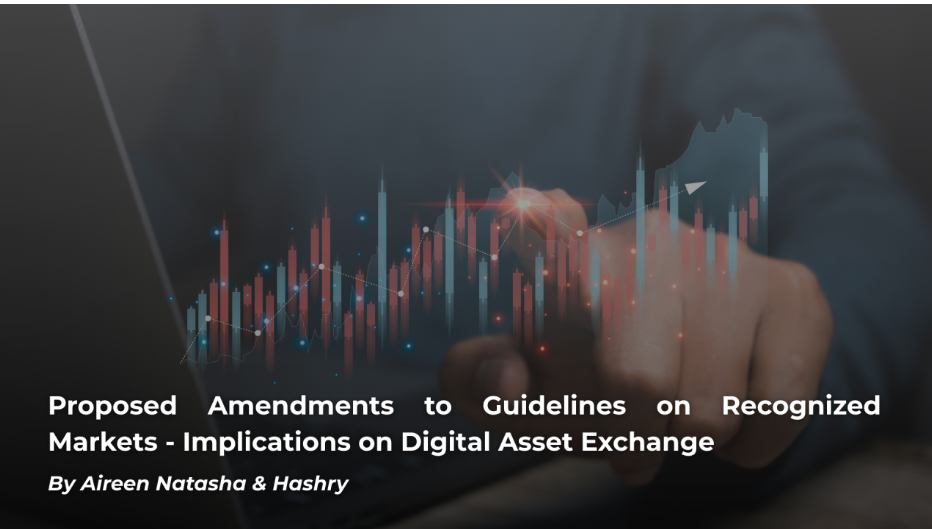What are Prediction Market Platforms?
Prediction markets are decentralized platforms accessible to the public, enabling participants to engage in real-time prediction trading. One notable example is Polymarket, a blockchain-based prediction market utilizing USDC— a stablecoin pegged to the U.S. dollar—for transactions. Users can buy and sell shares that reflect the likelihood of various future events, such as, “Will TikTok face a ban in the U.S. this year?”[1]
These markets leverage crowd-sourced intelligence to aggregate collective insights on a wide range of predictive events, spanning from political elections to entertainment accolades like the Oscars. The decision-making process behind pricing is driven by the principles of supply and demand, ultimately offering a unique mechanism for assessing probabilities tied to real-world occurrences.
How does it work?
Modern prediction markets employ a binary option framework, necessitating participants to select between two possible outcomes: “Yes” or “No” regarding the occurrence of a specified event.
In this binary structure, the “Yes” and “No” options effectively represent shares in the event’s outcome. The total shares in the market will always sum to 1, correlating with the aggregate opinions of participants and the corresponding prices of each share. For instance, if 70% of participants predict that an event will occur (voting “Yes”), and 30% vote “No,” the market prices will adjust to reflect this sentiment — resulting in a YES share priced at $0.70 and a NO share at $0.30, collectively summing to 1[2].
Upon the resolution of the market, which occurs after the event’s outcome is established, the shares will be settled to their respective values of 1 and 0. Specifically, if the event materializes, every YES share will pay out $1, while NO shares become worthless. Conversely, if the event fails to occur, NO shares will settle at $1, with YES shares becoming valueless.
Participants who bet correctly on the outcome will receive a $1 payout for each share they hold, while those who misjudged the outcome forfeit their investments in those shares. The pricing of shares is directly influenced by participants’ assessments of the event’s likelihood, mirroring the prevailing market consensus. Therefore, share prices are dynamic and will fluctuate in response to shifts in participants’ beliefs about the probability of the outcome occurring.
Key legal issues based on Malaysian law
In Malaysia, under Clause 2 of the Common Gaming Houses Act 1953 (“CGHA”)[3], “Gaming” is defined as “the playing of any game of chance or of mixed chance and skill for money or money’s worth”. “Gaming machine” on the other hand is defined as “any mechanical, electrical or electronic machine or device (including any computer program used in such machine or device)”.
Under Clause 2 of the Betting Act 1953 (“BA”)[4], “common betting house” means “any place kept or used for betting or wagering whether such betting or wagering, be in cash or on credit, on any event or contingency of or relating to any horse race or other sporting event or lottery to which the public or any class of the public has access;
Under Clause 2 of the Pool Betting Act 1967 (“PBA”)[5], “pool betting” means “a bet made by means of a totalizator situated in or outside Malaysia in respect of any prescribed event”. “Prescribed event” on the other hand is defined “as football matches or a series of such matches held in or outside Malaysia and any other event in respect of which it is prescribed under this Act”.
The analysis indicates that the definitions pertinent to the mechanism of prediction markets are fragmented across various legislative acts, resulting in an incomplete legal framework in Malaysia. Consequently, the jurisdiction surrounding prediction markets remains outdated and insufficiently addresses models incorporating cryptocurrency as a payment method.
This legal ambiguity may encourage the public to exploit prediction markets for wagering purposes, perceiving it as an opportunity. However, on the corporate and investment fronts, this situation poses significant risks due to the lack of clarity regarding the government’s position on prediction markets. Such uncertainty can obstruct the seamless operation of related businesses, impacting aspects like fund clearance and the acquisition of necessary licenses, including e-wallet licenses, from relevant authorities. Without a clear legal standing, obtaining these licenses becomes problematic, as regulatory bodies are unlikely to issue approvals for ventures that occupy a grey area in the law.
An analysis on the regulatory frameworks most relevant to prediction markets
The regulation of prediction market platforms falls under the purview of the Capital Markets and Services Act (“CMSA”)[6] enforced in 2007, which acts as Malaysia’s regulatory framework governing capital markets and its services. Depending on how the prediction market platform is operated, it would have to abide by this framework enforced by the Securities Commission Malaysia (“SC”).
Prediction markets could fall under the category of derivatives due to its nature involving the buying and selling of contracts based on the outcomes of future events. Derivatives, “…means any contract, either for the purposes of creating an obligation or a right or any combination of both, of which its market value, delivery or payment obligations are derived from.”[7]
The CMSA acts to ensure that markets similar to prediction markets have the approval to operate legally in Malaysia, regulated under the Guidelines on Regulation of Markets under Section 34 of the CMSA.[8] This would require a license and registration as a market operator, transparent conduct of business or trading practice and to prevent market manipulation such as market rigging or false trading. Any platform conducting or abetting in unauthorised trading will alert the SC and is an offence, under Division 1 of Prohibited conduct and Division 2. Although the framework does not explicitly mention prediction markets, such platforms should adhere to the CMSA to ensure compliance with the nation’s current laws and act responsibly.
Prediction Market in other countries
In contrast to many other jurisdictions, the United States adopts a relatively complex framework for prediction markets, wherein certain markets are permissible under specific contexts while others remain illegal at both federal and state levels. According to the Commodity Exchange Act[9], political prediction markets are forbidden unless they meet certain exemptions. To address this challenge, the Commodity Futures Trading Commission (“CFTC”) has announced plans to convene a public roundtable approximately 45 days following its solicitation of information regarding sports-related event contracts. This initiative seeks to compile a comprehensive administrative record, leveraging studies, data, expert analyses, and contributions from a diverse array of stakeholders to guide the CFTC’s regulatory strategy for prediction markets, particularly concerning sports-related contracts.
Conversely, the regulatory framework governing prediction markets in other territories, such as Singapore, has become increasingly well-defined, particularly through the Remote Gambling Act of 2014 and the operations of Singapore Pools. In January 2025, the Gambling Regulatory Authority (“GRA”) of Singapore initiated enforcement actions against Polymarket, instructing local internet service providers to restrict access to the platform. The GRA classified Polymarket as an “illegal gambling site operated by an unlicensed gambling services provider,” reflecting a stringent stance on unauthorised gambling activities.
Conclusion
In a recent article by the New Straits Times, Datuk Seri Azalina Othman Said, Minister in the Prime Minister’s Department (Law and Institutional Reform), addressed the necessity of revising existing legislation to remain relevant in the context of digital technology.[10] She noted that current laws may not adequately address contemporary challenges or may require amendments to better align with modern realities.
Similarly, in a statement reported by The Star, Prime Minister Datuk Seri Anwar Ibrahim highlighted that Malaysia must not rely on archaic legislation to tackle the complexities introduced by rapid technological advancement.[11] He underscored the importance of pursuing comprehensive reforms to enhance opportunities for international collaboration. The Prime Minister reiterated the critical need to engage with corporations and state entities, recognizing the pivotal role that emerging technologies and innovations will play in the legislative amendment process.
In conclusion, the regulatory landscape surrounding prediction markets in Malaysia is characterized by significant ambiguity, influenced by a multitude of factors. The country’s predominantly Muslim demographic and the designation of Islam as the state religion play a crucial role in shaping legal considerations, particularly concerning online gambling and betting. This context creates a complex legal framework where the potential approval of such activities becomes a contentious issue.
Public sentiment remains largely apprehensive toward online betting, contributing to the cautious stance of the government. As a result, regulators may favour a conservative approach, favouring stringent oversight or postponing any legislation aimed at legitimizing these markets. The intersection of economic motivations and the imperative to uphold cultural and religious values suggests that a rapid transition towards the legalization of online gambling or prediction markets is unlikely.
Furthermore, Malaysia’s commitment to preserving its cultural and religious identity is anticipated to steer governmental policies toward more conservative positions regarding online betting in the near term. Consequently, any policy shifts are likely to be gradual, with careful consideration of the broader societal implications.
If you have any questions or queries, please contact our Financial Services & M&A Senior Associate, Mr. Aryn Rozali (aryn@nzchambers.com).
Authors:
- Aryn Rozali
- Prue
References:
[1] What is Polymarket? – Polymarket Learn. (n.d.). https://learn.polymarket.com/docs/guides/get-started/what-is-polymarket/
[2] Agbo, J. (2024, November 9). 7 Best Crypto Prediction Markets in 2025. CoinGape. https://coingape.com/best-crypto-prediction-markets/
[3] The Common Gaming Houses Act 1953
[4] The Betting Act 1953
[5] The Pool Betting Act 1967
[6] The Capital Markets and Services Act 2007
[7] The Capital Markets and Services Act 2007
[8] Guidelines on Regulation of Markets under Section 34 of the CMSA
[9] The Commodity Exchange Act 1936
[10] Bernama. (2024, August 12). Over 3,000 outdated laws need to be reviewed: Azalina. NST Online. https://www.nst.com.my/news/nation/2024/08/1090444/over-3000-outdated-laws-need-be-reviewed-azalina
[11] Online, S. (2025, January 22). Malaysia cannot rely on outdated legislation to face emerging challenges, says Anwar. The Star. https://www.thestar.com.my/news/nation/2025/01/22/malaysia-cannot-rely-on-outdated-legislation-to-face-emerging-challenges-says-anwar
Published on 21.02.2025





